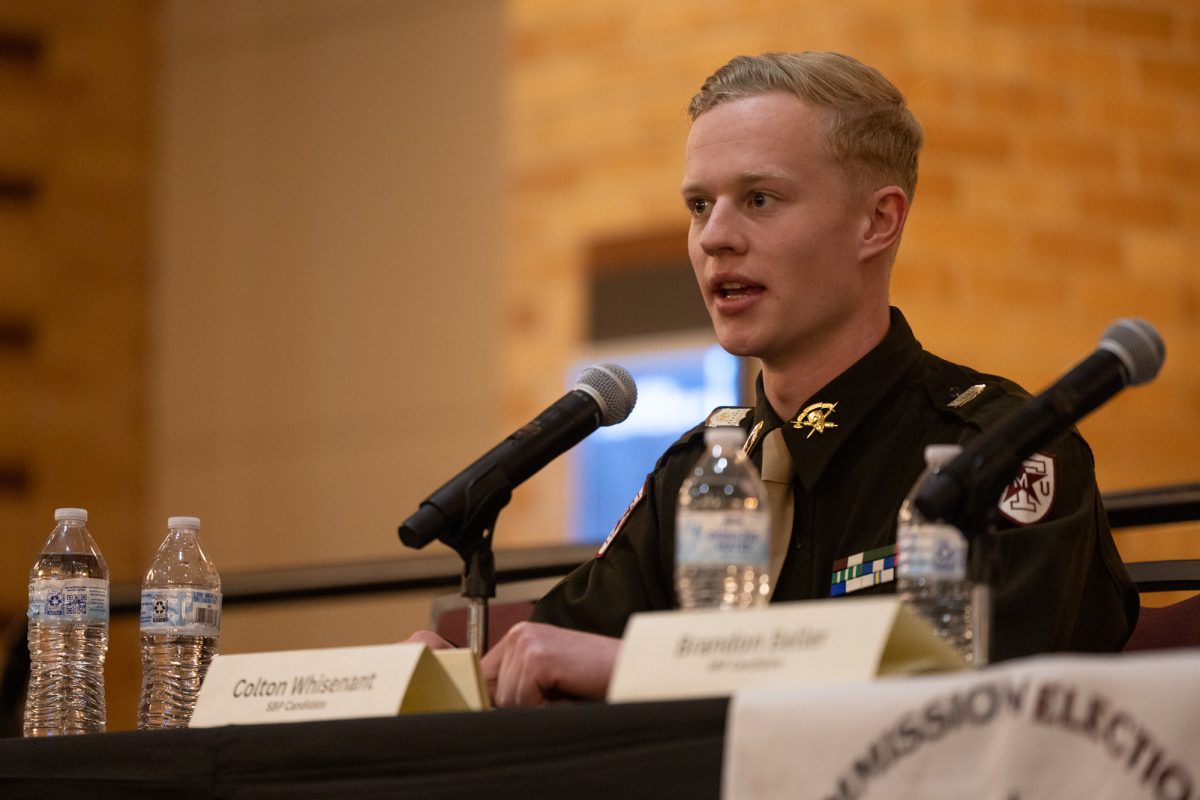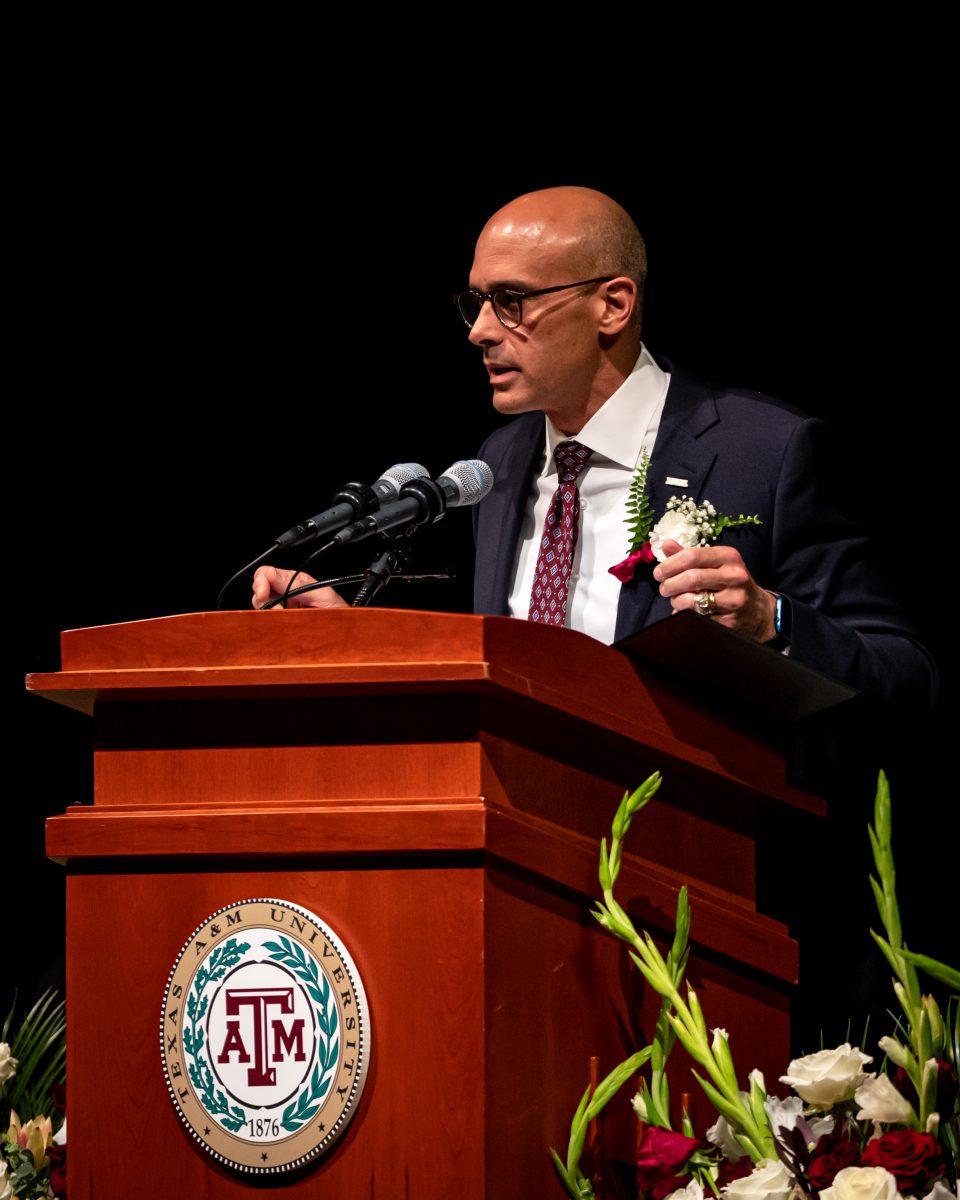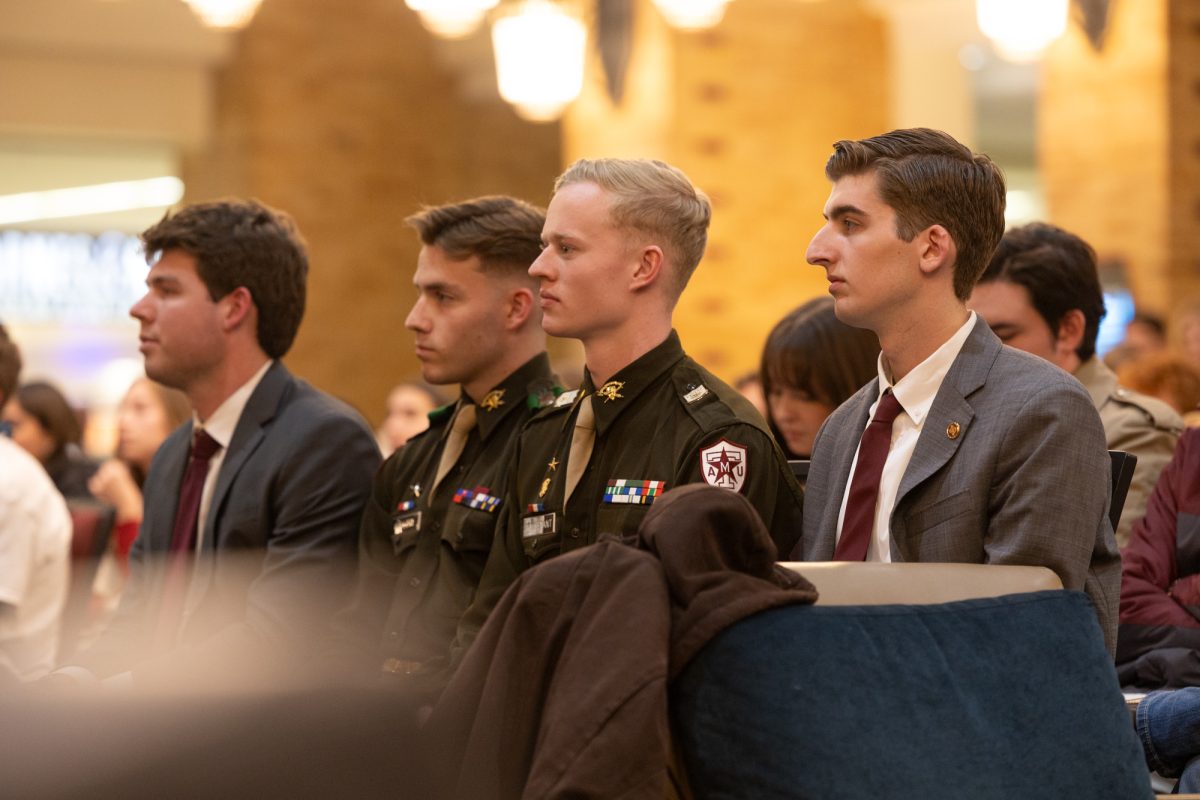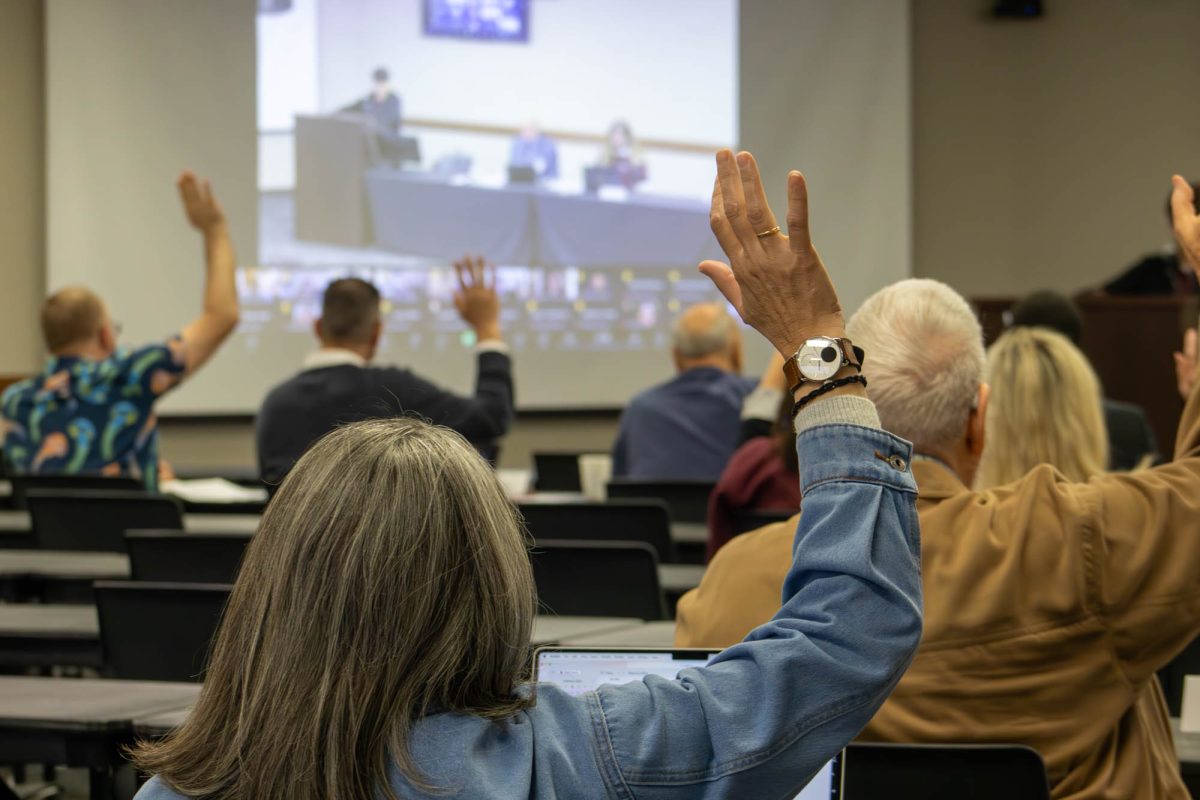Lindsey Gawlik, news editor, sits down with Senior Yell Leader Roy May, who served on a military rescue-and-recovery team in the Pentagon after 9/11.
THE BATTALION: Where were you when you found out?
MAY: I was actually in the Old Guard. We had actually just pulled an overnight shift … We were going to hop on the bus going back and go to sleep. One of my buddies comes in and he goes, ‘Dude, did you hear a plane hit one of the World Trade Centers?’ And my first thought was, ‘What moron in the air traffic control tower is about to go to federal prison,’ you know? And then we were all sitting in this place called C-hall and then we all figured out something’s going on. I remember going out to my truck and turning the radio on and, you know, you don’t ever listen to AM radio when you’re 22 years old, so I remember having to fumble around with the radio a little bit. We had heard the boom from the Pentagon, the F-18’s got scrambled, like they just went screaming overhead … We were upstairs in the dayroom watching the news coverage trying to figure out what was going on. It’s really hard to explain, I kept calling my mom, calling my mom, just so I could finally get through to let her know I was okay… I finally got through to her, and telling her I was okay and it being a quick call. I told her, ‘Okay I got to go, I don’t want to clog up the circuits. I know everybody is trying to do this.’ So we’re sitting around, we finally get the word that our mission is rescue and recovery.
THE BATTALION: Explain the recovery mission.
MAY: So that night we went to the Pentagon. And we started down from the impact site. And started with smoke and you’re really working your way down the hallway — you know, there are smoke-inhalation victims, then flash-fire victims, then straight-up fire victims. Then we got real close to the impact site — as close as we could go, since we didn’t know the stability of the structures. So the engineers said, ‘You aren’t going any further,’ and we ended up working there for 18 straight days in 12-hour shifts. We started as rescue-and-recovery for the first night; obviously it just turned into recovery. And we’d go in and we’d be there for 12 hours at a time and we’d rotate shifts inside the building and put on the suit and the gloves and the facemask and everything and we were just digging, you know? They had huge metal trash receptacles — the kind that go on the back of trucks — and one would be for, like, plane parts and they had one for, like, office furniture. Any paperwork we found went in a separate pile because they had to pulp it all.
THE BATTALION: What was it like?
MAY: It was weird. You’d find some of the weirdest things. Like I saw this huge file cabinet, this huge metal file cabinet all the way to the ceiling, just melted. But then I found a pack of highlighters. I found an apple. Pictures in frames that looked undamaged other than from the water from spraying down the flames. It was just crazy. Like these things hadn’t just been touched by a killer fire that was strong enough to melt metal and make it look like silly putty. And anytime you found something — any sort of body part — you had to stop and the FBI would come over and take pictures and remove it with biohazard bags and properly do it. Then we’d just go back to digging, pretty much.
THE BATTALION: What were your emotions like that day?
MAY: You get mad. Like, really mad. You get angry throughout the day. You’re sad. It’s such a rollercoaster of emotions. There’s the point of joy and almost celebration when, you know, when we found out the plane that went down in Pennsylvania had been taken out of the hands of the terrorists. Obviously you were sad about the loss of lives but the American spirit was to be celebrated, you know?
THE BATTALION: You have a 9-year-old daughter. Many students were actually around your daughter’s age when it happened. What is it like talking to college students about it now?
MAY: I look at it similarly to when I asked my dad and my mom about the Vietnam War and asked my mom about the Vietnam era. It’s a small parallel but to me it’s a significant historical event. But I don’t have a problem talking about it. It’s important for people who lived through it to tell about it. Because you can read about something in the history books, but that’s very factual statements about events, and then you can talk to people that have experienced it and get a completely different perspective of the same event. And that’s what makes it so interesting … I don’t have any issue talking about anything. I mean, I saw some really gruesome stuff inside the Pentagon. I’m not going to sit and describe what I saw. But I don’t mind talking about it. I mean that’s not something you get around here at A&M, but yeah, it’s a different perspective. It’s not some of my favorite memories but it’s also not my privilege to withhold that time and experience.
Yell leader Roy May shares experience of being on active duty at Pentagon on 9/11
September 10, 2014
0
Donate to The Battalion
$1365
$5000
Contributed
Our Goal
Your donation will support the student journalists of Texas A&M University - College Station. Your contribution will allow us to purchase equipment and cover our annual website hosting costs, in addition to paying freelance staffers for their work, travel costs for coverage and more!
More to Discover









